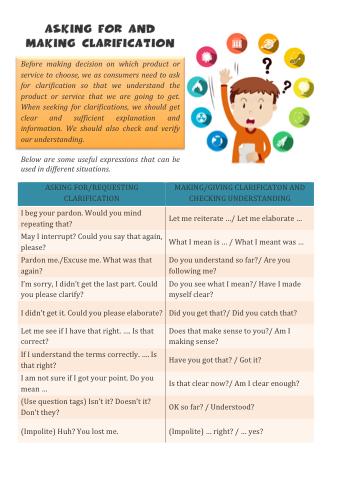Morocco’s Rising Influence Through Financial Diplomacy in Africa
Over the past year, Morocco has increasingly asserted itself as a significant force in African geopolitics by deploying what experts term “financial diplomacy” to advance its strategic interests across the continent and beyond. By channeling substantial capital into pivotal industries and cultivating alliances with both longstanding partners and emerging stakeholders, Morocco is effectively leveraging its economic strength to expand influence and stimulate regional development. According to recent insights from the Institute for Security Studies (ISS Africa), this method not only embodies Morocco’s continental ambitions but also signals a transformation in Africa’s international relations landscape. As these diplomatic investments begin yielding concrete results, analysts are closely watching how this approach might redefine Morocco’s global standing and impact future frameworks for African collaboration.
Forging Robust Economic Alliances: Morocco as a Gateway to African Markets
In recent years, Morocco has strategically positioned itself as an essential conduit between Africa and global markets through an array of targeted economic partnerships. Capitalizing on its geographic proximity to Europe and sub-Saharan Africa alike, the kingdom has nurtured diplomatic ties that facilitate enhanced trade flows and investment opportunities throughout diverse sectors such as agriculture, renewable energy, and technology innovation. Key collaborations with countries including Senegal, Côte d’Ivoire, and Nigeria have seen Moroccan enterprises invest heavily in infrastructure projects, capacity building initiatives, and knowledge transfer programs-laying foundations for sustainable growth.
This proactive economic diplomacy transcends mere financial metrics; it fosters job creation while facilitating technology diffusion across partner nations. Memberships in continental bodies like the African Union (AU), alongside participation in regional trade agreements such as AfCFTA (African Continental Free Trade Area), have opened new avenues for Moroccan companies seeking market expansion.
- Sustained increase in Foreign Direct Investment (FDI): Notably within mining operations, eco-tourism ventures, and agribusiness development.
- Diversification of export portfolios: Growth observed particularly within textile manufacturing hubs alongside agro-processed goods reaching broader markets.
- Cultural diplomacy efforts: strong > Initiatives promoting Moroccan heritage through educational exchanges enhance soft power influence continent-wide.
| African Partner Nation | Main Investment Project | Sectors Involved |
|---|---|---|
| Senegal | Solar power generation facility development | Renewable Energy & Infrastructure |
| Côte d’Ivoire | ||
| Nigeria |
The Role of Financial Diplomacy in Elevating Morocco’s Regional Standing & Trade Networks
The deliberate use ofdollar diplomacy by Morocco has markedly strengthened its position within West Africa and beyond by fostering robust commercial ties supported by U.S.-backed financial mechanisms.
This strategy hinges on leveraging American capital inflows combined with bilateral agreements that open doors for mutual benefit.
Key elements underpinning this rise include:
- Bilateral Trade Agreements:The landmark U.S.-Morocco Free Trade Agreement catalyzed reciprocal trade growth especially benefiting sectors like textiles,
agro-industrial products,and consumer electronics. - An Attractive Investment Environment:The surge of American direct investments bolsters local manufacturing capabilities,generates employment,
and enhances competitiveness,making Casablanca a preferred hub for multinational corporations targeting African markets. - Diplomatic Capital Gains:Morroco’s reputation as a reliable U.S.partner strengthens its voice at regional security forums addressing counter-terrorism
and transnational threats.
The following table illustrates trends over five years highlighting export-import dynamics reflecting these developments:
| Year | Exports (Billion USD) | Imports (Billion USD) |
|---|---|---|
| 2019 | 3.5 | 4.0 |
| 2020 | 3.8 | 4.1 |
| Proposed Measure< / th > | Anticipated Benefit< / th > tr > thead >
Measure Expected Outcome A Forward Look: Sustaining Momentum Amidst Growing Global Engagements
The evidence suggests that Morocco’s calculated embrace of financial diplomacy is beginning to bear fruit-manifested through expanding partnerships reshaping both domestic economies and wider continental networks.The kingdom’s focus on renewable energy projects,infrastructure upgrades,and technological innovation highlights ambitions far beyond immediate gains.It aims instead at establishing long-term leadership status within Africa’s evolving geopolitical order.As it deepens ties not only with traditional allies like France but also emerging powers including China,the United States,the Gulf states,Morocco stands poised at a crossroads where strategic foresight will determine whether early successes translate into enduring prosperity. The coming months will be pivotal; monitoring how these initiatives evolve offers valuable insight into broader trends shaping African integration,economic diversification,and political stability.Stay connected here for ongoing analysis tracking how Moroccan financial strategies continue influencing regional dynamics-and what they mean for future cooperation across one of today’s most dynamic continents. |
|---|

